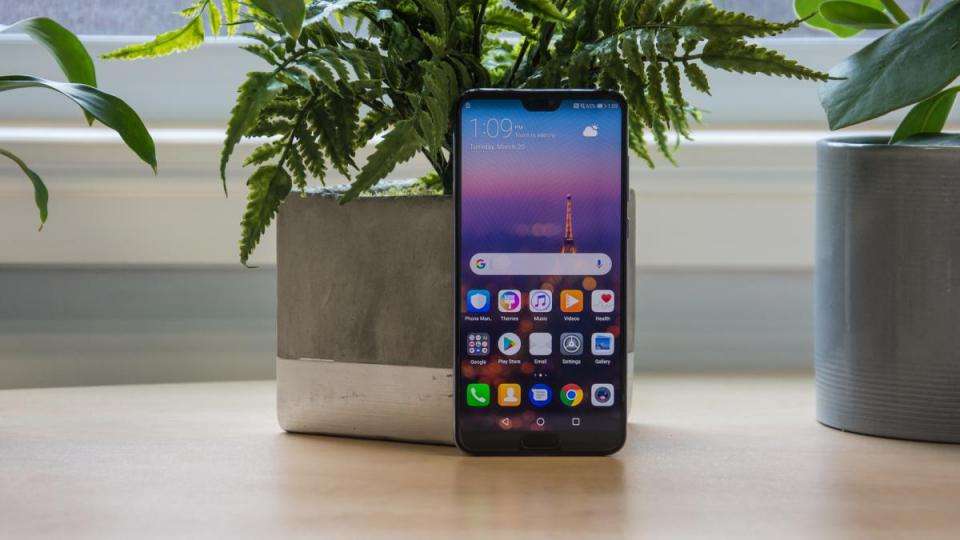Mobile operators may soon be banned from selling phones that are locked to a particular network under new Ofcom plans announced today.
The UK communications regulator has opened a consultation to make switching both mobile and broadband contracts easier as part of the UK's obligation to implement the new European Electronic Communications Code.
In particular, it is calling for "fair treatment" for mobile customers who buy phones from companies that can't be used on other networks. It is currently possible to unlock a phone at the end of a contract but this is usually at the cost of the customer and can cause switching delays while waiting for codes.
BT and its subsidiary EE, Vodafone and Tesco Mobile currently sell locked phones meaning these operators would be impacted by these plans should the consultation period pass successfully. O2, Sky, Three and Virgin Media already sell unlocked phones but these plans will make it mandatory.
"Switching mobile provider can be really frustrating," said Lindsey Fussell, the director of Ofcom’s consumer division. "By freeing mobile users from locked handsets, our plans would save people time, effort and money – and help them unlock a better deal."
Unsurprisingly, O2 and Three have welcomed the changes. O2 said it was "pleased the regulator recognises we’re ahead of the curve on this," with Three calling for the consultation plans to be brought forward to remove the barriers to switching earlier.
EE told Expert Reviews that while it locks new smartphones "to protect customers and make it harder for criminals to commit fraud," the company doesn't charge customers to have their phones unlocked at the end of their contracts and will automatically unlock phones, including iPhones and Pixel devices, wherever possible.
"We're already working to make it easier for customers to unlock their devices and switch providers, and we’re working closely with Ofcom through this consultation to improve the experience for our customers while protecting against fraud,” an EE spokesperson said.
What else is Ofcom proposing?
As part of these consultation plans, Ofcom is additionally proposing the following:
Better contract information and stronger rights to exit
Ofcom wants customers to be given the information they need in writing before they sign a contract – including a summary of key terms. It's also proposing that customers be given the right to exit a contract if there are any changes to their contract that they were not previously told about and are not exclusively to their benefit. This right to exit would also apply to other services or equipment bought as part of a bundle.
Making broadband switching easier and more reliable
Ofcom wants "customers to be able to switch broadband providers easily to take advantage of the deals available" and has taken a number of steps to make this a priority. Firstly, it wants to make "gaining provider-led switching" mandatory.
This switching process means customers only have to contact their new provider to ask to switch and the new provider handles all the admin involved. BT, EE, Plusnet, Sky, TalkTalk, Vodafone and Zen Internet already offer this service, but Virgin Media doesn't; switching from Virgin requires you to cancel one contract and start another, potentially leading to a gap in service.
READ NEXT: Best broadband provider
Ofcom is additionally proposing to ban notice period charges beyond the switch date for residential customers switching their fixed services. There are existing rules on this for mobile customers but not for broadband contracts.
Ensuring customers with disabilities have equivalent access to, and choice of, communications services
Elsewhere, Ofcom is proposing that all phone and broadband providers enable British Sign Language (BSL) users to contact the emergency services using video relay services and that all written communications to all customers who need alternative formats, should be provided in an accessible format (such as large print) on request.
This latest consultation builds on regulations introduced last year that lets users switch networks by requesting their PAC (Porting Authorisation Code) via text message. This made it easier for customers to keep their number when moving between providers.
Commenting on Ofcom's latest proposal, Matt Powell, editor at Broadband Genie said: "Together, these rules will mean that UK mobile users can freely – and very quickly – swap mobile phone plans to get the best price and service. As such, networks will have to work harder than ever to retain loyal subscribers, not only relying on great deals but also offering outstanding customer service and network coverage."
Richard Neudegg, head of regulation at uSwitch.com , added: "We also welcome Ofcom’s plans to improve the experience of switching broadband providers. As more new fibre networks start offering services to consumers, it’s vital that switching processes keep up with the increased choice. Ensuring that switches are always done automatically, and are smoothly coordinated by the new company, will help ensure that people are not put off moving to better services.
“However, the devil is in the detail and we need to see exactly how industry translates these proposed new principles into a switching system that really works for consumers.”
Ofcom's consultation on the proposals will run until March 2020 and you can read the full document here .







Leave a Reply